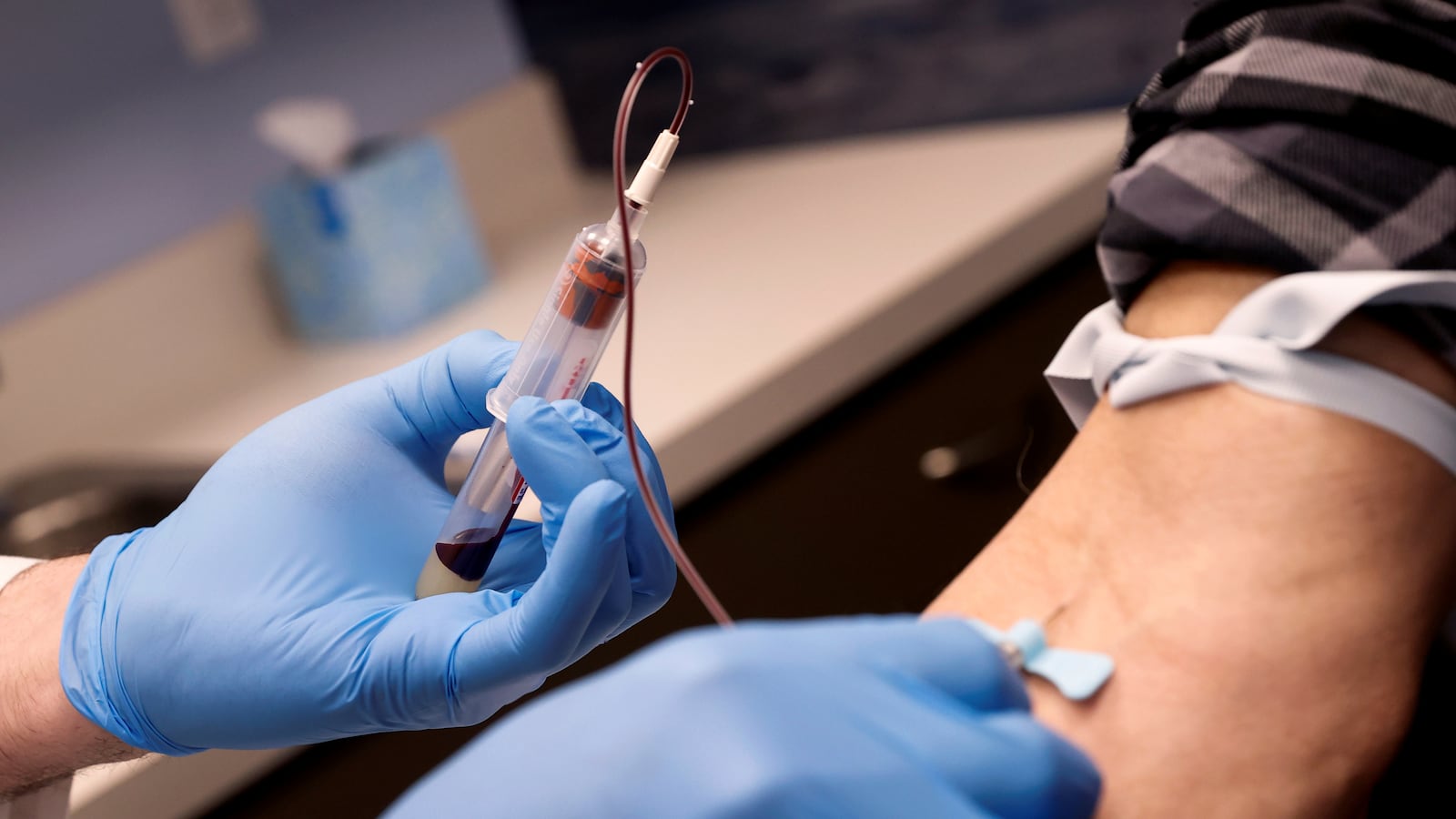A groundbreaking new blood test announced this week is capable of diagnosing Alzheimer’s disease with 91 percent accuracy—opening the way to routine testing for the condition, similar to that for cholesterol or prostate cancer.
The breakthrough, unveiled by Swedish researchers at the Alzheimer’s Association International Conference in Philadelphia and published in JAMA, revealed that the new blood tests are far more accurate than family doctors and even specialists.
Traditionally, Alzheimer’s diagnosis has depended on a specialist making a finding followed by more invasive methods like spinal taps and brain scans.
But the study used new tests measuring the presence of a biomarker called p-tau217, which correlates to a build up of amyloid plaque in the brain. The plaque build-up is associated with Alzheimer’s, which afflicts more than 6.9 million Americans today.
In the study, approximately 1,200 patients from primary care and specialized memory clinics in Sweden went through traditional diagnostic exams, blood tests, and more intense procedures like spinal taps and brain scans. The results were striking: primary care doctors were 61% accurate, specialists 73%, and the simple blood test 91%.
Alzheimer’s disease, characterized by brain-clogging amyloid plaques and tau protein tangles, Some 55 million people around the world suffer from dementia. As the US population ages, the number of people with Alzheimer's may grow to a projected 12.7 million by 2050, barring some major breakthrough.

Alzheimer’s is associated with the presence of amyloid plaque, seen here in yellow. The blood test measures a biomarker, p-tau217, associated with the plaque.
BSIP/Education Images/Universal Images Group/Getty Images“Now, we screen people with mammograms and PSA or prostate exams and other things to look for very early signs of cancer,” Dr. Adam Boxer, a neurologist at the University of California, San Francisco, who was not involved in the study, told The New York Times. “And I think we’re going to be doing the same thing for Alzheimer’s disease and hopefully other forms of neurodegeneration.”
“We’d love to have a blood test that can be used in a primary care physician’s office, functioning like a cholesterol test but for Alzheimer’s,” said Dr. Maria Carrillo, chief science officer of the Alzheimer’s Association, told CNN.
“The p-tau217 blood test is turning out to be the most specific for Alzheimer’s and the one with the most validity. It seems to be the front-runner,” said Carrillo, who oversees the Alzheimer’s Association’s research, including funding for the new study.
Several companies, including ALZpath Inc., Roche, Eli Lilly, and C2N Diagnostics, are developing such tests, with some versions already utilized in the Swedish study.

Currently diagnosing Alzheimer’s involves either brain scans or spinal taps. The new blood test offers a simpler and more accurate method.
Shawn Patrick Ouellette/Portland Press Herald/Getty ImagesWhile the tests hold immense promise, experts recommend that they be limited to patients currently exhibiting memory problems.
The new test “really has great potential to help [primary care doctors] in sorting out who to give a reassuring message and who to send on to memory specialists,” said Dr. Sebastian Palmqvist of Lund University, who led the Swedish study with Lund’s Dr. Oskar Hansson, in an interview with the Associated Press.
For people without memory loss who are worried about genetic or familial Alzheimer’s risk, blood tests are not yet recommended. Amyloid buildup can begin decades before symptoms appear, and no preventive treatments are currently available apart from general guidelines about healthy eating and living.





